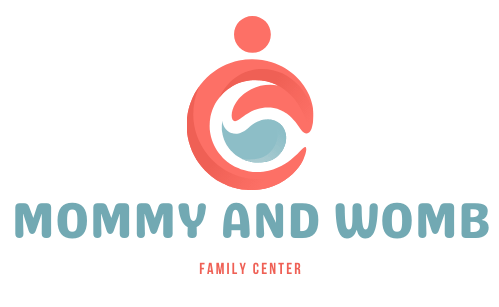What to Expect at 5 Weeks Pregnant: Early Signs and Changes

Pregnancy is a mix of excitement and anticipation. At 5 weeks, you’re already seeing amazing changes in your body. This journey is transformative and will change your life. It may feel daunting at first, but remember, you’re not alone. Millions of women have been where you are, and with the right support, you can enjoy this new chapter.
At 5 weeks, the embryo looks more like a fetus, with a growing neural tube and placenta1. Your hCG hormone levels are high enough for a home pregnancy test to confirm your pregnancy1. The tiny life inside you is like an orange seed, with organs like the heart and lungs starting to form1.
You might already be feeling tired, nauseous, and tender breasts. These are signs your body is working hard to support the growing fetus1. You might also notice strange food cravings or aversions, and more saliva. These are all part of the hormonal changes happening in your body1.
Table of Contents
What to Expect at 5 Weeks Pregnant: Early Signs and Changes
Understanding Your Pregnancy Timeline
Starting your pregnancy journey means learning about your baby’s growth. A typical pregnancy lasts about 40 weeks, from the first day of your last period2. But, a normal pregnancy is between 38 to 42 weeks2.
How Pregnancy Weeks Are Calculated
Pregnancy weeks start from the first day of your last period. Even though you get pregnant around week 2, your pregnancy is counted from the start of your last cycle3. This way, doctors can track your pregnancy progress.
From Conception to Week 5
By the 5th week, your embryo is tiny, about 0.05 inches and less than 0.04 ounces, like an orange seed3. This is when most people find out they’re pregnant, even if they don’t know yet3.
Your Due Date Estimation
Your due date is 40 weeks from the start of your last period2. But remember, every pregnancy is different. If you conceived through IVF, your due date is based on the embryo transfer date. Talk to your doctor to get an accurate due date.
Tracking your pregnancy from start to finish is key. It helps you understand each stage. Early prenatal care is also vital for your baby’s health3.
| Pregnancy Milestones | Timeline |
|---|---|
| Conception | Around Week 2 |
| Embryo Implantation | Week 5 |
| First Trimester | Weeks 1-12 |
| Second Trimester | Weeks 13-28 |
| Third Trimester | Weeks 29-40 |
| Average Due Date | Week 40 |
Knowing your pregnancy timeline is key for your baby’s growth and your prenatal care3. Stay informed and work with your doctor to enjoy this journey with confidence.
Early Pregnancy Detection and Testing
If you think you might be pregnant, the first step is to confirm it. This is a thrilling but complex process. You’ll need to understand early pregnancy detection and how to read test results. Let’s dive into the key parts of this journey.
HCG Hormone Levels
The human chorionic gonadotropin (HCG) hormone is key for pregnancy. HCG levels jump up fast in early pregnancy, doubling every 48-72 hours4. This quick rise in HCG lets home pregnancy tests show a positive result as early as the first missed period.
When to Take a Pregnancy Test
The best time to take a pregnancy test is after missing your period. Home tests can spot HCG in your urine, showing a positive result4. But for the most accurate results, wait until after your missed period5.
Understanding Test Results
A positive test means you’re pregnant. A negative result doesn’t always mean you’re not. If your period is late and you still have symptoms, retake the test or see your doctor for a blood test4. Sometimes, early scans are needed to confirm the pregnancy and check for any issues, like an ectopic pregnancy5.
Getting to know early pregnancy detection and testing can make this time more confident. Remember, every pregnancy is different. It’s crucial to work with your healthcare provider for the best results.
5 Weeks Pregnant: Your Baby’s Development
At 5 weeks pregnant, your embryo is growing fast. The neural tube, which will become the brain and spinal cord, is starting to form6. It looks like a tadpole with a simple head and tail. All major organs, like the digestive system and lungs, are just starting to form6. It’s about the size of an orange seed at this point6.
The embryonic stage lasts from the 5th to the 10th week. By then, the baby will be about 1 inch long6. The heart and blood system are also starting to develop. The embryo is slowly becoming more human-like6.
- The neural tube, which will become the brain and spinal cord, is forming6.
- All major bodily systems and organs are in the early stages of development6.
- The embryo has a tadpole-like appearance with a rudimentary head and tail6.
- The embryo is approximately the size of an orange seed6.
- The embryonic stage runs from the 5th through the 10th week of pregnancy6.
- By the end of the embryonic stage, the baby will be about 1 inch long6.
As your pregnancy goes on, your baby will keep growing and changing. Keeping up with your baby’s growth can make this time more exciting and less stressful.
Physical Changes in Your Body
At the 5-week mark, you might notice changes in your body. These changes come from hormonal shifts and your baby’s fast growth7.
Breast Changes and Tenderness
One early sign of pregnancy is tender breasts. Hormones like estrogen and progesterone make breasts swell and get more sensitive7. The dark areas around your nipples may darken too.
Digestive System Changes
Pregnancy can affect your stomach. Many women feel nauseous, not just in the morning7. Hormonal changes and more blood flow to the stomach cause this. You might also burp more and feel heartburn as your uterus grows7.
Fatigue and Energy Levels
Feeling very tired is common early in pregnancy7. Your body needs more energy for your growing baby and hormonal changes. You might need more sleep as your blood volume and heart rate increase7.
Remember, every pregnancy is different. The changes and when they happen can vary. If you’re worried or have severe symptoms, talk to your healthcare provider89.
Common Symptoms at Week 5
At the 5th week of pregnancy, you might notice several early signs. A missed period is a common sign10. Some women also experience implantation bleeding as the fertilized egg attaches to the uterine lining1011.
Fatigue is another symptom many feel10. Expectant mothers often notice breast tenderness early on10. Morning sickness, which can happen any time, may start too101211.
Hormonal changes can affect your appetite, leading to cravings or aversions10. Some women might taste metal or smell things more strongly1012.
Mood swings and headaches are common as your body adjusts to hormonal changes10. Digestive issues like bloating or heartburn can also occur10. You might also find yourself needing to pee more often10.
Not every woman will experience all these symptoms, and their intensity can vary101211.
If you’re concerned about your symptoms, talk to your healthcare provider. They can offer support and guidance during this exciting time101211.
| Symptom | Occurrence |
|---|---|
| Missed Period | Common |
| Fatigue | Prevalent |
| Breast Tenderness | One of the Earliest Signs |
| Morning Sickness | Can Occur Anytime |
| Food Cravings/Aversions | Common |
| Metallic Taste | Possible |
| Heightened Sense of Smell | Common |
| Mood Swings | Common |
| Headaches | Common |
| Digestive Issues | Possible |
| Frequent Urination | Common |
Remember, not all women experience the same symptoms, and the intensity can vary. If you have any concerns, it’s always best to consult your healthcare provider101211.
Hormonal Changes and Their Effects
Pregnancy is a remarkable journey with big hormonal changes. Your body gets ready to nurture a new life, with estrogen and progesterone levels soaring13. These hormones help the uterus and placenta grow and keep the uterine lining strong13.
The “pregnancy hormone,” human chorionic gonadotropin (hCG), helps make progesterone13. In the first 10 weeks, hCG levels double every two days13. This tells your body to keep supporting the growing fetus13.
Emotional Impact of Hormones
Hormonal changes can deeply affect your mood. Mood swings, like those in PMS but more intense, are common in early pregnancy14. You might feel joy, excitement, anxiety, or uncertainty as you adjust to being pregnant14.
Remember, these mood swings are normal and can be managed. Self-care, support from loved ones, and professional help can help14. Knowing about hormonal changes can help you deal with early pregnancy’s emotional ups and downs.
“Pregnancy is a remarkable journey marked by significant hormonal fluctuations, which can have a profound impact on your emotional well-being.”
Nutrition and Wellness Guidelines
Keeping a healthy pregnancy is more than just prenatal vitamins. You need a diet full of fruits, veggies, whole grains, lean proteins, and healthy fats for you and your baby15. Prenatal vitamins with folic acid (400 micrograms daily) help prevent neural tube defects1516.
Drinking plenty of water is key during pregnancy16. It helps prevent preterm labor, headaches, kidney stones, and dizziness16. Try to limit your caffeine intake to 200 mg a day to avoid affecting your baby’s heart rate17.
To support a healthy pregnancy, avoid alcohol, smoking, and drugs16. Keeping a healthy weight through good nutrition and exercise is also vital15. Talk to your healthcare provider about any dietary needs or supplements.
| Nutrient | Recommended Daily Intake During Pregnancy |
|---|---|
| Calcium | 1,300 milligrams (mg)17 |
| Folic Acid | 600 micrograms (mcg) or more17 |
| Iron | 27 mg17 |
| Vitamin D | 600 international units17 |
| DHA | 200 mg17 |
Following these nutrition and wellness guidelines supports a healthy pregnancy and a healthy baby. Always get personalized advice from your healthcare provider during your pregnancy.
Important Precautions and Lifestyle Changes
During your pregnancy, your safety and well-being are top priorities. Your body is changing in amazing ways. Making some key changes can help you stay healthy and comfortable.
Exercise Modifications
It’s good to stay active during pregnancy. But, you should change how you exercise. Try walking, prenatal yoga, or swimming for a good workout without risking injury18.
Avoid sports that involve contact or activities where you might fall. These can be risky for you and your baby19.
Substances to Avoid
It’s important to avoid harmful substances for your baby’s health. Stay away from toxic chemicals like some cleaning products and pesticides19. Quit smoking right away and don’t breathe in secondhand smoke. It can harm your pregnancy19.
Also, don’t overdo it on caffeine. Stick to 200mg or less a day. Too much caffeine can lead to miscarriage, low birth weight, and other problems19.
Sleep and Rest Requirements
Pregnancy can be tiring, both physically and emotionally. Make sure to get enough sleep. Aim for 7-9 hours each night to help your body recover18.
If you’re feeling tired during the day, take short breaks. This can help you stay energized18. Cutting back on things you don’t need to do can also give you more time to rest18.
Remember, your body is changing in incredible ways. Listening to what it needs is key. By adjusting your exercise, what you avoid, and your sleep, you can stay healthy and enjoy your pregnancy journey.






